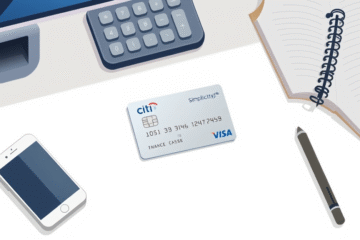Understanding Loan Benefits can be a game-changing factor in your financial journey.
Making informed decisions about personal loans is crucial for maintaining and improving your credit score.
From debt consolidation to funding education, loans can serve as powerful financial tools when used strategically.
Let’s explore how taking out a loan might be the smart choice for your financial future and credit improvement goals.
Understanding Credit Scores
Credit scores are essential for determining an individual’s creditworthiness, serving as a numerical representation of your credit behavior.
A credit score typically ranges from 300 to 850, with higher scores indicating better financial reliability.
This score is calculated using various factors, which we will discuss in depth.
Payment history is the most significant component, representing around 35% of your score.
It reflects how timely you are in repaying past credit obligations.
Another critical factor is credit utilization, accounting for 30% of your score.
This measures the proportion of your credit limits that you’re currently using.
Keeping this ratio low demonstrates responsible credit management.
Additionally, the length of your credit history, which impacts 15% of your score, is crucial.
This considers the age of your oldest credit account and the average age of all your accounts.
Maintaining a long credit history can positively affect your score.
| Factor | Importance |
|---|---|
| Payment History | 35% |
| Credit Utilization | 30% |
| Length of Credit History | 15% |
Understanding credit scores is vital as they impact your ability to secure loans, credit cards, and favorable interest rates.
Lenders rely on this score to assess the risk of lending to you, making a strong credit score advantageous.
Impact of Loans on Credit History
Loans can have a profound impact on your credit history, affecting both short-term and long-term credit scores.
Timely repayments can enhance your credit profile by showing reliability to creditors, thus potentially improving your credit score over time.
For a deeper understanding, see more on enhancing credit profiles at Experian.
However, missed payments can have detrimental effects, leading to lower credit scores and potential borrowing limitations in the future.
You can learn more about these risks from Investopedia.
Best practices for managing loans include making timely payments, maintaining a diverse credit mix, and keeping credit inquiries to a minimum.
Understanding these strategies can help maintain a positive credit impact.
Best Practices for Loan Management
Managing loans efficiently is crucial for ensuring they positively affect credit scores. Set reminders for payment dates to avoid late fees and negative impacts on your credit score.
Avoid missing payments by using calendar alerts or automatic payments to ensure timely settlements. Maintain low credit utilization, as this represents 30% of your credit score.
See Crowe LLP’s loan review checklist for more insights. Aim to keep your credit card balances below 30% of their limits to enhance your credit profile. Regularly review your credit report to identify inaccuracies or areas requiring improvement promptly.
Disputing errors early can prevent future complications in your financial journey. Strategically consolidate high-interest debt with a personal loan to simplify payments and reduce interest expenses. Always review loan terms carefully before agreeing, ensuring they align with your financial goals.
Leveraging these tactics effectively can safeguard financial health and facilitate credit improvement over time.
Taking out a loan requires careful consideration of your financial situation and goals.
When used responsibly, loans can be an effective tool for building credit and achieving financial stability.



0 Comments